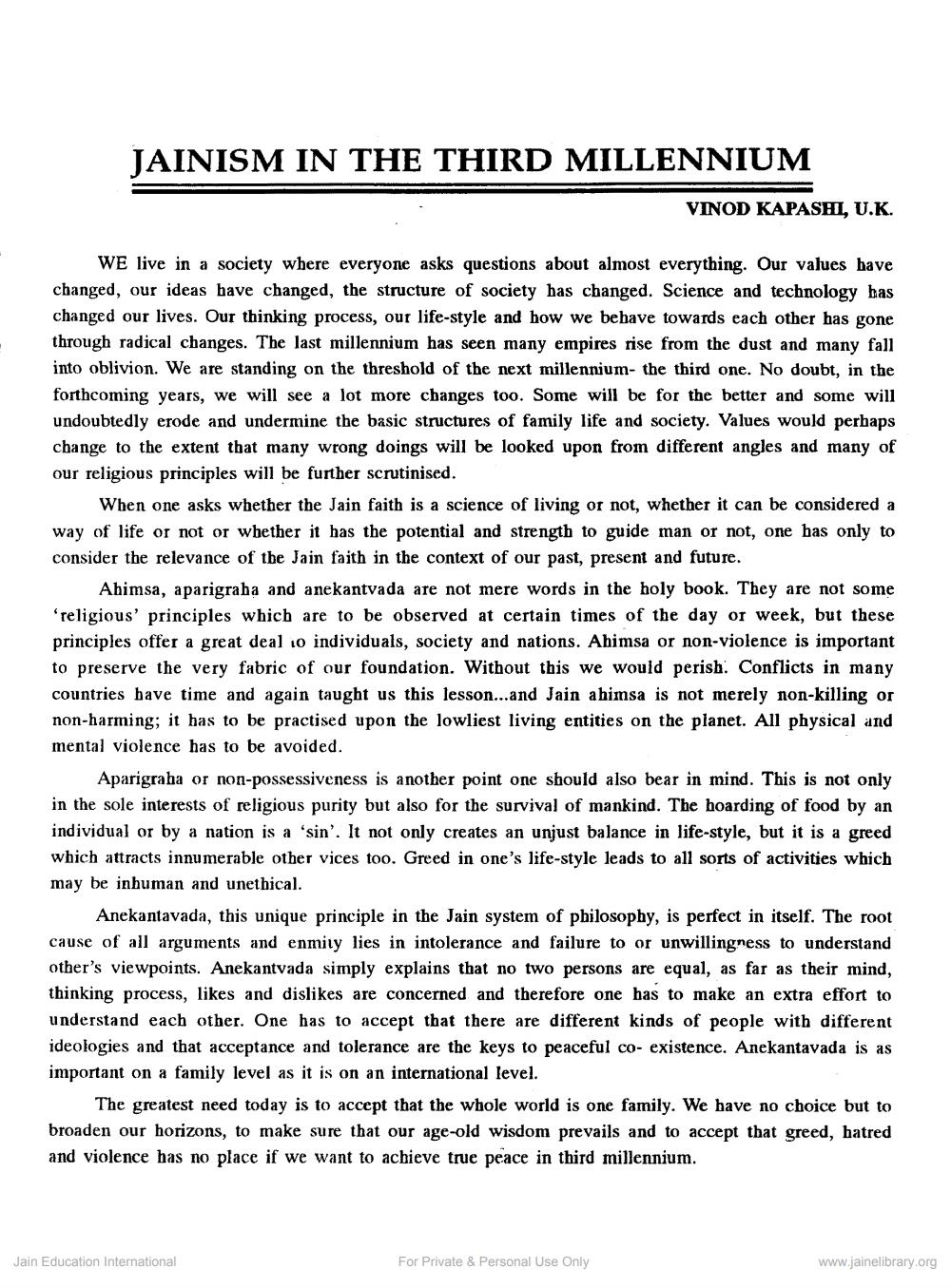________________
JAINISM IN THE THIRD MILLENNIUM
VINOD KAPASHI, U.K.
We live in a society where everyone asks questions about almost everything. Our values have changed, our ideas have changed, the structure of society has changed. Science and technology has changed our lives. Our thinking process, our life-style and how we behave towards each other has gone through radical changes. The last millennium has seen many empires rise from the dust and many fall into oblivion. We are standing on the threshold of the next millennium- the third one. No doubt, in the forthcoming years, we will see a lot more changes too. Some will be for the better and some will undoubtedly erode and undermine the basic structures of family life and society. Values would perhaps change to the extent that many wrong doings will be looked upon from different angles and many of our religious principles will be further scrutinised.
When one asks whether the Jain faith is a science of living or not, whether it can be considered a way of life or not or whether it has the potential and strength to guide man or not, one has only to consider the relevance of the Jain faith in the context of our past, present and future.
Ahimsa, aparigraba and anekantvada are not mere words in the holy book. They are not some 'religious' principles which are to be observed at certain times of the day or week, but these principles offer a great deal 10 individuals, society and nations. Ahimsa or non-violence is important to preserve the very fabric of our foundation. Without this we would perish. Conflicts in many countries have time and again taught us this lesson...and Jain ahimsa is not merely non-killing or non-harming; it has to be practised upon the lowliest living entities on the planet. All physical and mental violence has to be avoided.
Aparigraba or non-possessiveness is another point one should also bear in mind. This is not only in the sole interests of religious purity but also for the survival of mankind. The hoarding of food by an individual or by a nation is a 'sin'. It not only creates an unjust balance in life-style, but it is a greed which attracts innumerable other vices too. Greed in one's life-style leads to all sorts of activities which may be inhuman and unethical.
Anekantavada, this unique principle in the Jain system of philosophy, is perfect in itself. The root cause of all arguments and enmily lies in intolerance and failure to or unwillingness to understand other's viewpoints. Anekantvada simply explains that no two persons are equal, as far as their mind, thinking process, likes and dislikes are concerned and therefore one has to make an extra effort to understand each other. One has to accept that there are different kinds of people with different ideologies and that acceptance and tolerance are the keys to peaceful co-existence. Anekantavada is as important on a family level as it is on an international level.
The greatest need today is to accept that the whole world is one family. We have no choice but to broaden our horizons, to make sure that our age-old wisdom prevails and to accept that greed, hatred and violence has no place if we want to achieve true peace in third millennium.
Jain Education International
For Private & Personal Use Only
www.jainelibrary.org




